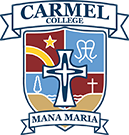Tena koutou katoa. Nga mihi nui atawhai.
Lockdown has given many people time to slow down and think. Colleagues have told me of people who came back from the last lockdown and decided to change careers – and some to change whole lives because, as they were thinking, they realised this wasn’t what they wanted to continue to do.
Ken Robinson, who died recently, was what I would describe as an academic philosopher. He was an inspiring academic and gifted public speaker who critiqued our current system of education, campaigning at every opportunity for students to have more opportunities to find their passions and to be creative.
“We have to go from what is essentially an industrial model of education, a manufacturing model, which is based on linearity and conformity and batching people.”
Robinson was particularly critical of our assessment systems:
“One problem with the systems of assessment that use letters and grades is that they are usually light on description and heavy on comparison. Students are sometimes given grades without really knowing what they mean, and teachers sometimes give grades without being completely sure why. A second problem is that a single letter or number cannot convey the complexities of the process that it is meant to summarise. And some outcomes cannot be adequately expressed in this way at all. As the noted educator Elliot Eisner once put it, “Not everything important is measurable, and not everything measurable is important.”
As NZQA and MOE review our NCEA standards (again!), there is a move to be more holistic in each of these Achievement Standards rather than being so prescriptive as they are now.
Robinson’s recommendation is to change how we view education: “We have to move to a model that is based more on principles of agriculture. We have to recognise that human flourishing is not a mechanical process; it’s an organic process. And you cannot predict the outcome of human development. All you can do, like a farmer, is create the conditions under which they will begin to flourish.”
This speaks to our more focused approach to wellbeing, where we create a sense of belonging for all our learners, a safe place where they can discover their passions and become who they want to be.
‘If you want to be successful,
It’s just that simple.
Know what you are doing.
Love what you are doing.
And believe in what you are doing.’ (Will Rogers)

